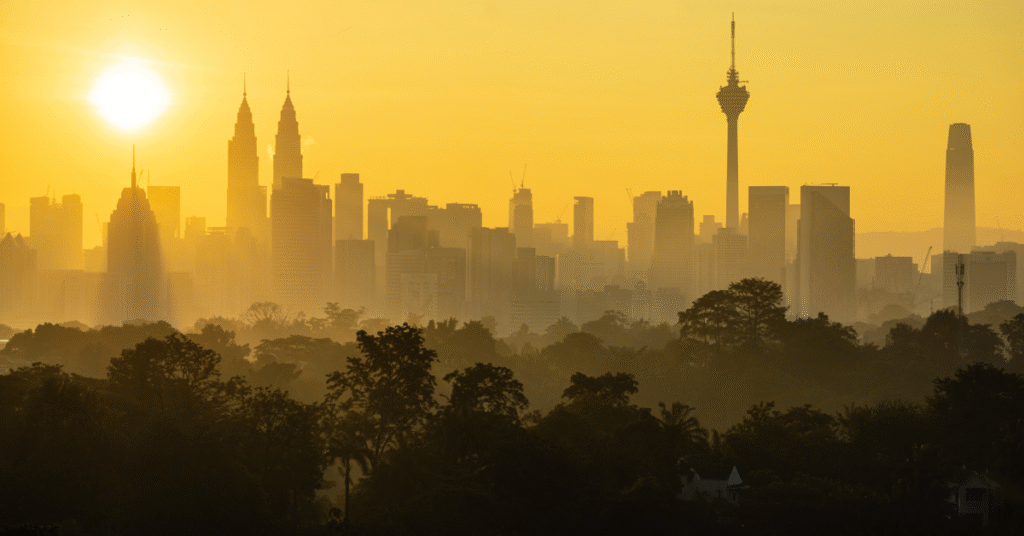By Cheah Chan Fatt

Malaysia’s Low Carbon City Framework (LCCF) is crucial in supporting the country’s net-zero carbon emission target, particularly as Malaysia works toward its broader goal of net-zero emissions by 2050. The framework, launched in 2011, provides a structured approach to reducing carbon emissions in urban areas. As 2025 marks a significant milestone in Malaysia’s National Energy Transition Roadmap (NETR), the effectiveness of the LCCF is more critical than ever in guiding sustainable development.
The LCCF focuses on four key areas: Urban Environment, Urban Infrastructure, Urban Transportation, and Buildings. These sectors contribute to Malaysia’s low-carbon ambitions by promoting energy efficiency, sustainable urban planning, and renewable energy adoption. The government introduced the Low Carbon Cities 2030 Challenge (LCC2030C) to encourage widespread implementation, inviting municipalities and communities to commit to carbon reduction efforts. Several cities and organizations have embraced the framework, providing tangible environmental and economic benefits.
As Malaysia works toward achieving net-zero emissions, urban development must align with the country’s decarbonization goals. In recent years, cities implementing LCCF have prioritized low-carbon infrastructure, climate-conscious governance, and eco-friendly urban design. One notable example is the Penang South Islands project, which received recognition for its sustainable urban plan in 2023. Designed with low-emission construction methods, green transportation networks, and renewable energy solutions, this initiative highlights how LCCF principles are incorporated into large-scale development projects.
Another leading example is Universiti Malaya, which has been actively implementing renewable energy projects and sustainability initiatives since 2013. The university aims to become carbon-neutral by 2050, supporting Malaysia’s broader transition toward clean energy. This aligns with the government’s 2025 target of increasing renewable energy capacity to 31%, reducing reliance on fossil fuels. As more institutions and local authorities adopt LCCF principles, Malaysia can accelerate toward a more resilient and sustainable future.
The LCCF also plays a key role in promoting green mobility, one of the most critical components of carbon reduction in urban areas. Malaysia’s Low Carbon Mobility Blueprints have been introduced to support the adoption of electric vehicle (EV), improve public transportation systems, and establish bike-friendly infrastructure. Cities following LCCF guidelines have worked toward expanding EV charging stations, increasing public transit efficiency, and reducing car dependency, supporting Malaysia’s push toward a more sustainable transportation ecosystem.
Despite its progress, the LCCF faces specific challenges in its implementation. While larger cities like Kuala Lumpur and Penang have successfully integrated low-carbon strategies, smaller municipalities often struggle with adoption due to funding limitations and policy misalignment. Additionally, Malaysia still depends heavily on fossil fuels, making energy transition efforts gradual rather than immediate. More substantial government incentives and regulations are necessary to accelerate renewable energy adoption and ensure urban areas fully embrace low-carbon development.
Public engagement is another crucial aspect of Malaysia’s net-zero carbon strategy. Encouraging businesses, households, and communities to adopt sustainable practices requires education initiatives, financial incentives, and widespread awareness campaigns. As environmental considerations become increasingly vital to economic growth, Malaysian cities must integrate LCCF principles at every level of urban planning. By fostering collaboration between government agencies, industries, and local communities, Malaysia can strengthen its commitment to net-zero emissions by 2025.
Looking ahead, Malaysia’s Low Carbon City Framework remains a cornerstone of its climate action plan. Strengthening the framework by refining policies, increasing funding for green initiatives, and expanding corporate partnerships will ensure the country makes consistent progress toward its carbon reduction milestones. As Malaysia approaches its 2025 targets, the LCCF will continue to shape sustainable urban spaces, supporting a healthier environment and a stronger economy. With innovation, leadership, and commitment, Malaysia is well-positioned to move closer to its net-zero carbon emission goals in 2025 and beyond.

Dr. Cheah Chan Fatt is a Research Fellow at the Ungku Aziz Centre for Development Studies (UAC), Universiti Malaya

